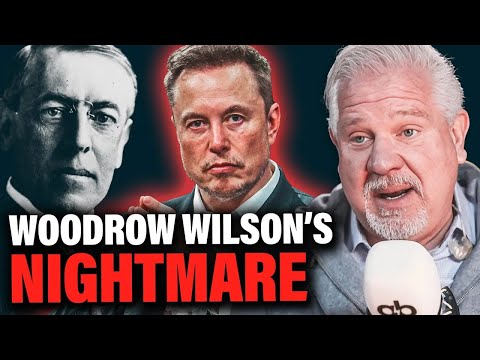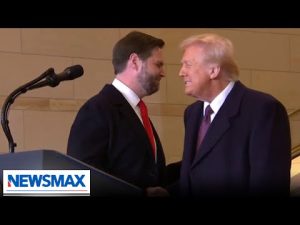**The Bureaucracy Battle: Unpacking Elon Musk and Woodrow Wilson’s Legacy**
In recent times, Elon Musk made a statement that rang alarm bells for many conservatives: he suggested that what we are living in today isn’t democracy but rather bureaucracy. While some might chuckle at this notion, it holds a deeper truth, especially when the ideas of a certain historical figure come into play. Musk’s observations have stirred up discussions that hark back to the days of Woodrow Wilson, the 28th President of the United States. This examination of bureaucracy versus democracy can lead to revelations about how modern governance operates and where it may be headed.
Wilson, though often celebrated as a progressive leader, held views that might surprise many. He was not a fan of the Constitution and viewed it as an outdated set of rules that constrained the government’s ability to serve society. According to Wilson, the government should be a “living organism” that adapts to the times, rather than a rigid machine bound by the checks and balances established by our founding fathers. This radical reimagining of government could be seen as the foundation of modern bureaucratic governance, where experts and elites operate largely outside of the voters’ control.
Imagine being in a crowded lecture hall in the early 1900s, where Wilson’s ideology was being introduced to a new generation of thinkers. Picture the eager students, their minds buzzing as they listen to a call for a society where scientists and intellectuals hold the reins of power, deciding what’s best for the rest of us—because clearly, we just can’t handle it ourselves. It’s a jaw-dropping concept for anyone who values self-governance and personal freedom, and one that seems almost laughable today, yet its echoes are still felt in political debates.
Fast forward to today, where unelected officials in positions of power make decisions affecting every facet of our lives—from the food we eat to the cars we drive. The growing bureaucracy, much like the one Wilson envisioned, seems to have taken hold as an ever-expanding entity. Critics argue that this leaves the individual, once the master of his own destiny, shackled to the whims of a ruling class that believes it knows best. What happened to the beauty of democracy, where every dollar cast in the ballot box should weigh equally?
The issue is not just about the evolution of government; it’s about its priorities. Wilson’s philosophies undeniably set the stage for a shift away from individual rights and toward a model of governance that scrutinizes our freedoms. Believing that rights are granted by the state rather than endowed by a higher power changes the very fabric of American society. Wilson’s dismissive views on the Declaration of Independence as “meaningless” speak volumes about his perspective—and, regrettably, about some views that persist even today.
Behind the veil of modern bureaucracy lies an unsettling truth: the danger of a government powered by science alone, devoid of morality, faith, or constitutional grounding. This is a clarion call for conservatives, as they critique the current state of overreach by experts and bureaucrats. Every time a new regulation comes down from on high, the average citizen may find themselves shoved further away from their rights. So, as Musk suggests, maybe it’s not democracy we need to be concerned about per se, but rather the bureaucratic machinery that threatens to push personal freedoms into the shadows.
In conclusion, the debate about bureaucracy versus democracy isn’t just a matter of semantics. It’s about the delicate balance of power and individual rights. As we analyze the legacy of Woodrow Wilson and the contemporary echoes of his dreams—echoes that Elon Musk has keenly observed—Americans must remain vigilant. After all, the principles of liberty and self-government must be defended against the lure of bureaucratic efficiency that can too easily spiral into a loss of individual freedom. Whether we’re in a grand lecture hall of the early 1900s or debating policy over coffee today, it’s essential for citizens to reclaim their right to self-determination in the face of a sprawling bureaucracy.



